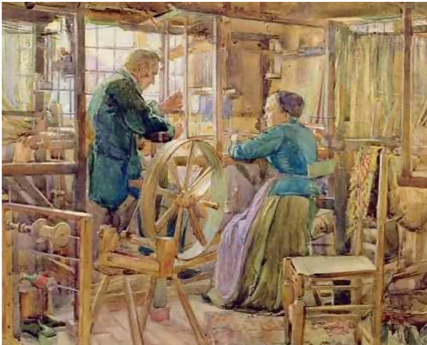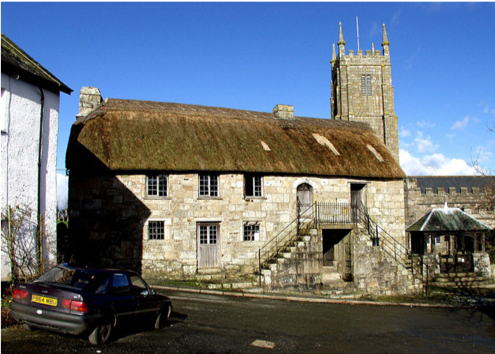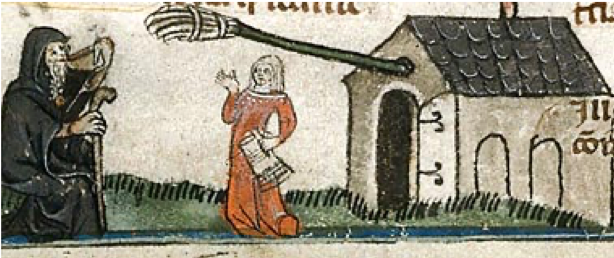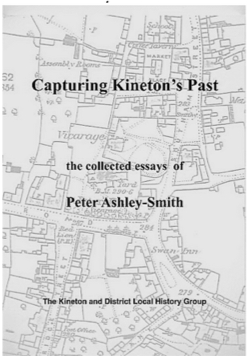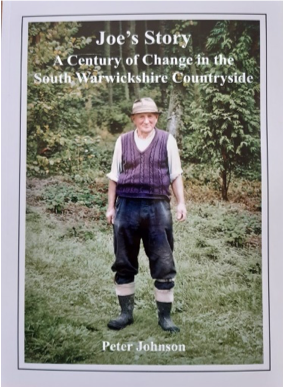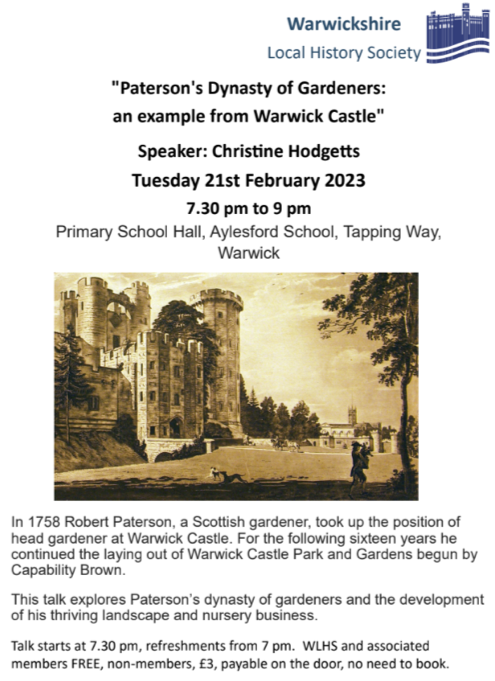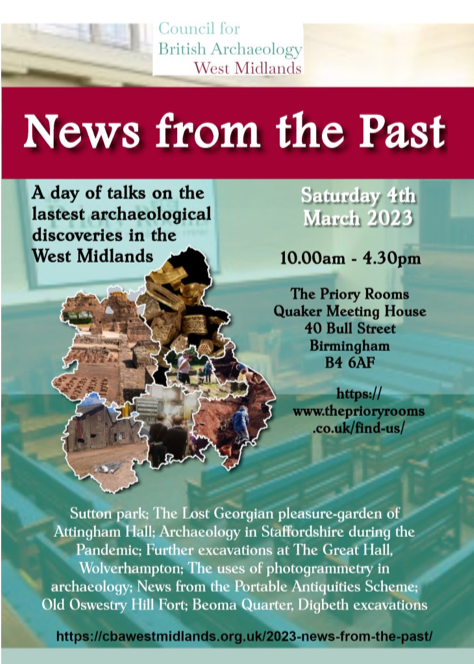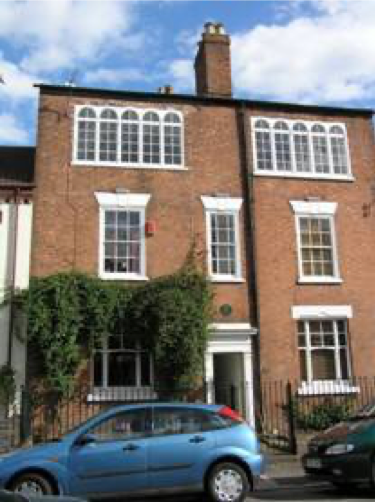
Our 17th February Meeting at 7.30 in Kineton Village Hall will feature David Fry talking about the Coventry Silk Ribbon Industry. This activity was the principal means of making living for up to half of Coventry’s working age population, from the 1700s to the mid 19th century. Beginning as a “cottage” industry carried out in workers’ own homes, early 19th century entrepreneurs transformed the industry with industrial looms in purpose-built mills.
The Jacquard Loom was the machinery which enabled this transformation. It used chains of punched cards to “programme” the loom to weave complex designs, and fewer weavers could produce larger quantities of fine finished material than was possible with the cottage industry methods.
The Jacquard Loom was invented in France in 1800, and was an important step in the development of computing technology. By the late 19th and into the 20th century the weaving industry declined and turned to making woven badges, labels and bookmarks. The Herbert Art Gallery and Museum has a fine collection related to the industry and its sociology. Our speaker David Fry has published work on the history of Coventry communities with a particular interest in historic photographs and industry.
The meeting will be followed as usual with a sociable chat over tea coffee and biscuits
Report on our January
At our first meeting of the New Year our speaker Professor Beat Kümin presented For a Good Cause: church ales and early modern drinking culture describing the role that drinking alcohol has played historically in social, religious and political life. Beat Kümin is Professor of Early Modern European History at Warwick University, and has written extensively on early modern society.
His talk emphasised how Church Ales – celebratory events organised by medieval parish communities – were significant contributors to parish incomes. The occasions could be saints’ days, seasonal celebrations, a ”King Play” when norms were inverted, and other special occasions such as Bride-Ales (Bridals). There could be music, dancing, competitions, sports, morris dancing, and other revels. The events were managed by lay Ale Wardens, who organised them and collected the dues. These individuals were not the same as the Ale Tasters who enforced the legal requirements the Assize of Ale regarding the quality of the beverage on behalf of the Lord of the Manor.
The amount of ale drunk each day per person in the 16th century was about 1.5 litres, although this drink contained less alcohol than modern beers. This daily consumption declined to about 1 litre in the 18th century, as a more restrictive attitude to alcohol grew with the rise of non-conformist religious sentiments. This difference in approach is starkly illustrated by the situation during the Commonwealth under Cromwell compared with the Restoration under Charles II. Other changes came about with the introduction of hops to make beer, with traditional women brewsters being gradually excluded from industrial brewing, and relegated to the sale of beer. The Church House was the usual venue for Church Ales, and this building could also generate income from rents, as well as being the focal point of community activities. Beat concluded by describing the general decline of the role of the church in parish affairs, and the recent efforts in Berkswell Parish to re-integrate the secular and religious through collaborative community events, a hopeful example.
Questions from the audience elicited the information that the situation in early modern Europe was much the same as in. England, and that the common view that ale was drunk to avoid contaminated water is wrong, as most rural spring water was perfectly potable. Asked which came first – the church or the drinking venue – Professor Kümin was clear that the church was the primary structure in parish history, although there were drinking establishments in Roman times. His talk was illustrated not just with informative pictures but also the sounds of rather raucous drinking songs!
The 2023-24 Programme
| Date | Speaker | Title |
| 17 Feb ‘23 | David Fry | The Silk Ribbon Industry of Coventry’ |
| 17 March ‘23 AGM | David Moylan | Funny Turns – A Celebration of the Entertainers and Entertainment of Days Gone By |
| 21 April | Judith Ellis | Campden House – the howse which was so fayre |
| 19 May | Frances Kermer | Common Land – Its Origin Loss and Survival |
| June, July, Aug | Visits TBC | Hampton Lucy, The Sibfords, tbc |
| 15 September | Martin Sinot-Smith | Sulgrave Manor & the Washington Family. |
| 20 October | John Miles | Charlecote & the Lucy Family |
| 17 November | Paul Grigsby | Roman Warwickshire |
| 8 December | Various | Members’ Christmas Treats |
| 19 January 2024 | Peter Walters | A Little History of Coventry |
| 16 February | Stephen Barker | The Battle of Edgehill 1642 |
| 15 March AGM | Vanessa Morgan | Local Rogues & Villains of the 19th century |
Capturing Kineton’s Past by Peter Ashley-Smith, edited by our President Robert Bearman
Members are encouraged tobecome evangelical about this publication, in order to promote the group, and foster an interest in the history of our village and its surroundings. This book would make an ideal birthday present? Peter’s encyclopaedic knowledge and years of research are here distilled into little nuggets – anecdotes, characters, and vignettes of past village life here presented to give a comprehensive picture of all aspects of Kineton’s colourful past.
Price £9.99 contact kinetonhistory@yahoo.co.uk
or purchase at meetings or via PayPal from our website:
Kineton and District Local History Group (kinetonhistory.co.uk)
Peter Johnson has updated and substantially revised and enlarged his biography of Joe Gerring, who worked around the area in Lighthorne, Compton Verney, Chesterton and Kineton. The book is a model of local history research and presentation, and is accompanied by a CD of Joe talking about his experiences. There has been a limited print run of only 100 copies of the book and CD and Peter Johnson has kindly donated a copy of both to the archive of the Kineton & District Local History Group.
Peter Johnson has a limited number of both the book and CD for sale. The book is £14 and the CD is £6. Postage rates on application. Home delivery available in Lighthorne and Kineton. Please email: colinjamessuch@gmail.com.
Other Societies’ Events
16th February. Warmington Heritage Group, Six Warrior Women of the Civil War 1642-51 Stephen Barker Warmington Village Hall, at 7.30 pm
21st February Warwickshire Local History Society Paterson’s Dynasty of Gardeners; an example from Warwick Castle.
Southam Heritage Collection: Accessing the Collection:
The current exhibition showcases the work by volunteers on the local Civil War loss accounts
Opening times are – Tuesday, Thursday, Friday and Saturday mornings 10 am – 12 noon.
Other times by appointment.
Our High Street and Atrium window displays are updated regularly so please keep a lookout for the latest displays as you pass by.
In addition to the Exhibition Room there is plenty to see online, so do take time to explore this website and sample some of its many interesting articles.
British Association for Local History. The Kineton Group is a Member of BALH and they run lectures and talks which are open to our members. www.balh.org.uk for upcoming talks available virtually.
Gresham College Lectures on History
Ancient Landscapes of Britain (Archaeology)Mike Pitts, Martin Millett and Helena Hamerow
https://www.gresham.ac.uk/watch-now/series/ancient-britain
Mike Pitts
6pm, Thurs 23 Feb 2023, Barnard’s Inn Hall/ Online/ Watch Later
https://www.gresham.ac.uk/whats-on/stonehenge-history
Martin Millett
6pm, Weds 15 Mar 2023, Barnard’s Inn Hall/ Online/ Watch Later
https://www.gresham.ac.uk/whats-on/roman-landscapes
The Medieval Agricultural Revolution: New Evidence
Helena Hamerow
6pm, Thurs 23 Mar 2023, Barnard’s Inn Hall/ Online/ Watch Later
https://www.gresham.ac.uk/whats-on/agricultural-rev
4th March CBA West Midlands News From the Past Priory Meeting Rooms, Bull Street, Birmingham, B4 6AF. 10.00am – 4.30pm
Don’t forget to check our own website at: Kineton and District Local History Group
Membership. If you are, or would like to become, a Member of the group, your 2023 subscription (still £10pa!) is due this January. Our Treasurer Alec Hitchman awaits! You can pay by cheque made payable to Kineton and District Local History Group, sent or delivered to Alec Hitchman, The Hills Farm, Pillerton Hersey, WARKS, CV35 0QQ, For queries contact Alec on alec.hitchman@btinternet.com You can also join at any talk.
With our bank now charging for payments by cheque or cash, we would urge those who can to please pay by BACS to our bank business account:
name: Kineton and District Local History Group,
sort code: 40-43-19;
acc. no. 71281992. Please include your full name so we can correctly attribute your payment.
2022-23 KDLHG Committee
President: Dr Robert Bearman MBE
Chairman David Freke
Vice-Chairman Roger Gaunt
Secretary Ilona Sekacz
Treasurer Alec Hitchman
Outings Secretary vacant
Programme Secretary Claire Roberts
Other committee members:
Rosemary Collier
Isobel Gill
George Lokuciejewski
Catherine Petrie (PR)
Pamela Redgrave (Membership)
Committee: There have been no meetings since the last Newsletter
Date of next Committee meeting: TBC
Contact David Freke tel. 01295 670516 mob. 07876 290044 email: djfreke@gmail.com
DF 13.02.23
